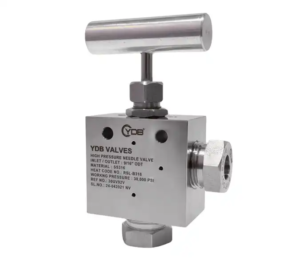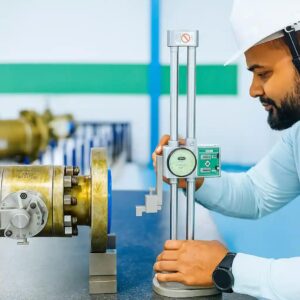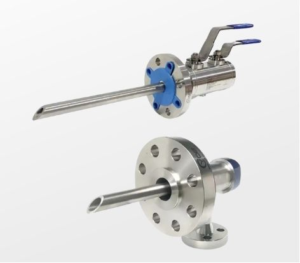When performance, safety, and consistency are at stake, few components are as critical as the valve. In industries that deal with intense pressure, high temperatures, and demanding flow conditions, forged ball valves have become the preferred choice for ensuring safe and reliable operation. Their engineering strength lies not only in the materials used but in the manufacturing precision that allows them to perform flawlessly under the harshest conditions.
Strength Starts with Forging
The core difference between a forged and a cast valve begins with how each one is made. Forging compresses metal under high pressure to form the desired shape, aligning its grain structure and improving its strength. This process eliminates internal voids and weak spots that can compromise performance under stress.
In contrast, cast valves are formed by pouring molten metal into molds, which can occasionally introduce porosity or surface defects. While casting works well for moderate applications, forging provides the structural integrity required for extreme environments. This distinction is vital in critical systems such as sour gas service, where exposure to hydrogen sulfide (H2S) can cause sulfide stress cracking, or hydrogen gas service, where high diffusivity can lead to hydrogen embrittlement. Forged construction offers the resilience needed to resist these effects, maintaining safe performance under aggressive conditions.
Built for Pressure and Performance
Forged ball valves are engineered to operate in extreme conditions where system pressure and temperature can fluctuate significantly. The forging process allows these valves to maintain their integrity even when exposed to sudden pressure spikes or vibration-heavy environments.
They are particularly valued in oil, gas, and power generation applications, where any leak or failure could lead to costly downtime or safety risks. The robust forged design ensures tight shutoff, smooth operation, and reliable sealing, even after years of service. Each valve is designed to handle high cycle rates, ensuring consistent performance with minimal wear on seats and seals.
Material selection further enhances their reliability. Common materials include stainless steel grades such as SS316 and SS316L, as well as Duplex and Inconel alloys for environments involving corrosive or high-temperature media. These materials offer not only superior strength but also excellent resistance to pitting, cracking, and oxidation.
Leak Prevention Through Precision Engineering
One of the key reasons industries prefer forged ball valves is their proven ability to prevent leakage. The forging process results in a more compact metal structure, minimizing potential leak paths. Combined with precision machining and high-quality sealing components, this design provides tight shutoff even under high pressure.
Advanced sealing technologies such as double block and bleed configurations or fire-safe designs further enhance safety. In critical flow systems, this ensures that the valve continues to perform even in emergency conditions. The precision in seat alignment, stem design, and surface finish plays a crucial role in reducing friction and maintaining consistent torque, resulting in smoother operation and longer service life.
Recommended Read: Choosing the Right Double Block and Bleed Valve for Your System
Forged vs. Cast: The Practical Advantage
Both forged and cast valves serve important roles across industries, but they differ significantly in application. Cast valves are often used where operating conditions are moderate, and cost efficiency is a priority. However, in severe service environments (such as offshore oil rigs, high-pressure gas pipelines, and thermal power plants), forged ball valves outperform cast designs by a wide margin.
Their improved strength-to-weight ratio allows for smaller body dimensions without compromising performance. This makes them easier to install and maintain, while their inherent durability translates into fewer replacements and lower life-cycle costs.
Why Clients Trust YDB Valves LLP
At YDB Valves LLP, we engineer forged ball valves that meet the highest global standards for strength, safety, and endurance. Our valves are designed and tested to perform reliably in the most demanding oil, gas, and power applications. By combining modern forging technology with precision CNC machining, we deliver valves that ensure leak-free performance and long-term dependability.
If you’re looking for durable flow control solutions that can stand up to pressure, talk to us today. Explore the YDB Valves LLP collection. We offer API 6D ball valves, cast ball valves, isolation ball valves, butterfly valves, injection quill valves, and more.






